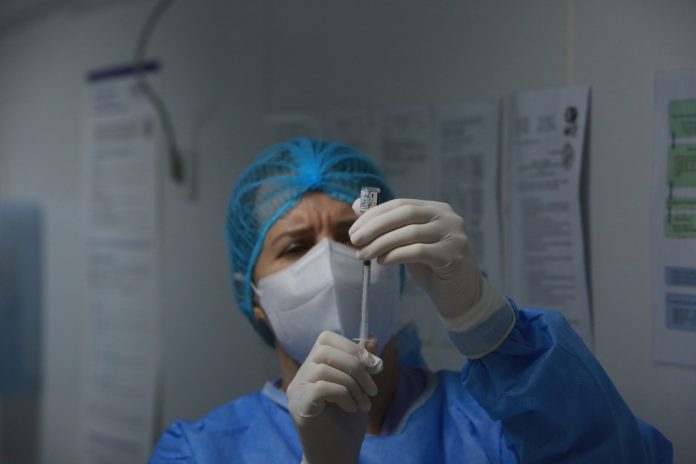Phase Three trial shows that the Convidecia vaccine is 57.5% effective against symptomatic COVID, while being 91.7% effective against severe COVID
The single-dose vaccine, created by CanSino Biologics and the Beijing Institute of Biotechnology, appears to be 57.5% effective against symptomatic COVID. Against severe infection with the virus, the effectiveness of the vaccine goes up to 91.7% effective.
The clinical trial, begun in September 2020, is ongoing. Currently, there are 66 sites across Argentina, Chile, Mexico, Pakistan and Russia.
How does the Convidecia vaccine work?
The Convidecia vaccine, known as Ad5-nCoV, is a viral vector vaccine – using a similar technology to AstraZeneca or the Sputnik V. Convidecia uses serotype 5. Essentially, the vaccine delivers genetic instructions for how to make specific antigens, straight to the immune system.
The trial data, published in The Lancet, suggests that a one-dose vaccine is capable of preventing COVID hospitalisation and death. The availability of a one-dose vaccine could change outcomes across countries with low access to double-dose vaccines.
Speaking about this potential, study lead author Dr Scott Halperin, Dalhousie University, Canada, said: “It could help provide improved access to vaccination, especially in low-and middle-income countries, where it can be more challenging to reach people with a two-dose primary vaccination course.”
‘Urgent need for continued development’ says scientist
Dr Richard Kennedy of the Mayo Clinic, USA, who was not involved in the study, commented: “Despite remarkable accomplishments in SARS-CoV-2 vaccine development and production, there are still large regions of the world where access to vaccines remains limited. In some areas of the world vaccine hesitancy is also an obstacle to achieving high vaccination coverage. In addition to these challenges, there is waning immunity from the SARS-CoV-2 vaccines and a continued emergence of variants capable of different degrees of immune evasion. Thus, there is a clear and urgent need for the continued development, testing, and use of additional vaccines.”
The research team found 105 positive cases out of 10,590 people in the placebo group. In the group given the vaccine, they found just 45 positive cases of COVID out of 10,660 people.
There appeared to be no signs of blood clots in any patients, with side effects mainly being pain at the injection site, headache drowsiness, and generalised muscle aches within seven days of injection.
None of the vaccine recipients died of COVID.
When can the vaccine come into use?
Currently, it seems like it will be a good while before the vaccine is available for use.
At the moment, more data is needed to understand how the Convidecia vaccine would work in real-world scenarios. For instance, despite a mix of trial sites, the majority of participants were from Pakistan or Mexico. There was an underrepresentation of women, older people. Then, people with unstable medical conditions, pregnant women and children were completely left out of testing.
“More research is needed to determine Ad5-nCoV’s effectiveness and durability over a longer period of time as well as its effectiveness against variants of concern, including omicron, which is rapidly overtaking delta as the dominant strain worldwide,” said Dr Joanne Langley, Dalhousie University, Canada.











